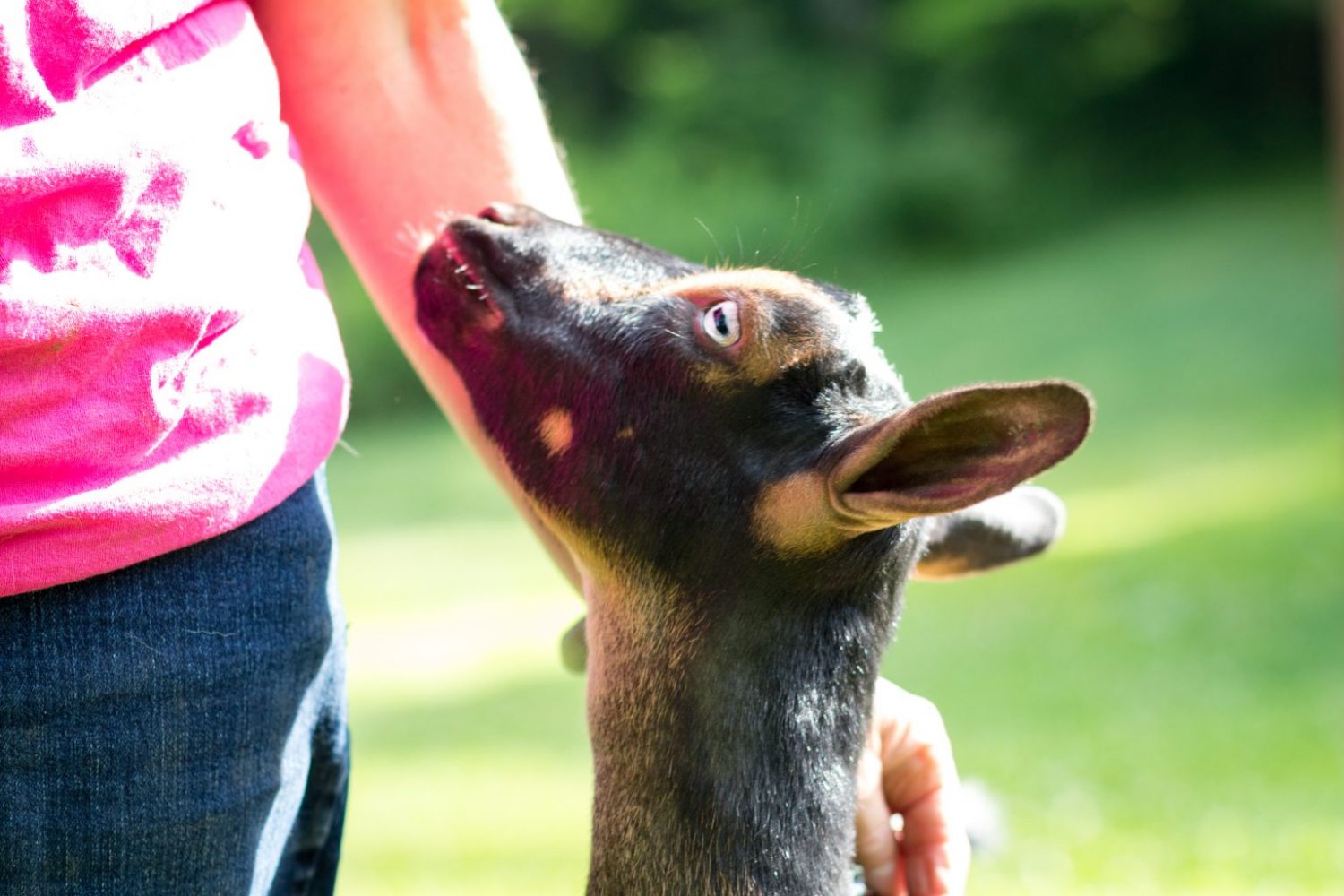As promised in our previous Blog on “Is it Cruel to Milk Goats?”, we promised to share information on the treatment of male kids. It is a question that we get relatively often. It is usually from concerned non-goat owners who have been exposed to radical animal abuse stories. We are happy to explain what we do with male kids.
About Male Goats
Activists often believe that all male kids are always killed because almost everyone wants the girl or doe kids since they can reproduce. Male kids can mate as well, but the issue is as boys grow, they develop buck behaviors and can become quite odiferous in the musky sense. He urinates on his beard (yes, you read that right) to attract the female with his personal form of cologne. Most goat owners laugh it off as “that time of year”. But to the uninitiated, it can understandably seem quite obnoxious and overwhelming.
Add to this the horror stories of male goats getting aggressive, butting or hurting their caretakers, breaking through fences, jumping on cars, eating the bushes and the list goes on. Frankly, we have never met a buck like this. Not to say they don’t exist, but we firmly believe a buck’s behavior is tied to his upbringing (just like any kid……goat or human).
So since males are only used once or twice a year to propagate the species, they still require maintenance the rest of the year, even though they are not nursing kids or producing milk. You can see why the birth of excess males can get problematic for some people.
What Happens to Male Goats
However, the Nigerian Dwarf breed in-particular has experienced massive growth in popularity over the last five years. Hard to believe, but at one time Nigerian Dwarfs were on the endangered species list! People have fallen in love with these diminutive goats. Their size is perfect for small hobby farms and even large backyards where zoning allows. Some zoning boards expressly state the only goats allowed are Nigerians and Pygmy goats. This is not to impugn the wonderful breeds of Alpine, Nubian, Saanen, and Toggenburg goats. Many are just as sweet and companionable, but they are just too large for most families seeking pets.
Every year we have a reservation list for our babies. Our customers are both serious, competitive Nigerian Dwarf enthusiasts and families wanting to own a goat. I always encourage first time owners towards the neutered male for their first goat-owning experience. Wethers are males who are castrated. Similar to bulls becoming steers and stallions becoming geldings. Because they have lost the testosterone, wethers grow little to no beard typically, do not urinate on their face, or have other “bucky” behaviors. They behave just like does, without a heat cycle.
So in our barn, when an exceptional male is born (lineage, genetics, body structure), he will keep his jewels and either join our herd or be sold to another serious breeder. This is a very small percentage of births typically. If he is not so well endowed (which most are not), he will be neutered and sold as a pet.
Goats Make Great Pets
We’ve sold wethers to over 50 families and they are some of the luckiest animals on the planet. Customers send us photos of their “boys” in the garage, on the porch, and even in the den. They become valued members of the family, just like a dog or cat. We love the stories. We love the grumpy husbands tolerating the purchase of a goat as their wife begs, only to hear a few months later how that “wether” is now his best bud and follows him everywhere.
If reading this has you thinking you want a wether in 2021, we have to apologize our reservation list is completely full for these little gentlemen. We can put you on a waitlist, but I cannot guarantee Mother Nature will even provide enough boys to meet the demand to adopt them.
So, we hope this explains what happens to the males born on our farm every Spring. We are not passing judgment on those farms that choose to enjoy goat meat. It is actually the most eaten meat on the planet much to the surprise of many and better for your health than beef or pork. It is exploding in popularity and the Boer Meat Breed is growing rapidly. The goat is revered in multiple cultures, both in the culinary sense and the practical. The meat is slowly and surely losing its designation as a 3rd world food.


